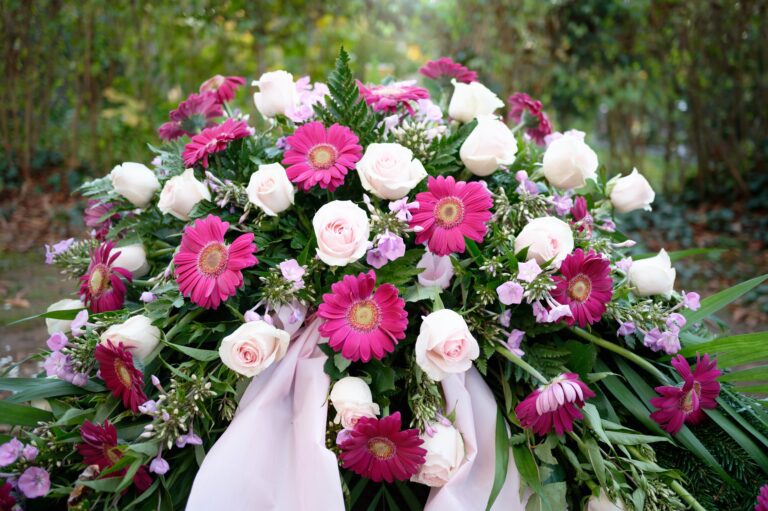
Home / The Flower Blog / Sympathy Flowers: Expressing Condolences with Elegance

At Bedford Village Flower Shoppe, we understand that navigating moments of grief and loss can be incredibly challenging. During these sensitive times, flowers serve as a powerful and timeless way to express your condolences, offering solace and support to those who are grieving.
This guide provides thoughtful insights and compassionate advice to help you choose appropriate sympathy flowers and convey your heartfelt sympathy with grace and elegance.
Flowers have long held a unique ability to communicate emotions that words sometimes cannot capture. In times of mourning, they speak volumes of comfort, love, and remembrance. Sympathy flowers can:
While personal preferences should always be considered, certain blooms carry traditional meanings of sympathy and remembrance:
It is very important that the words you choose and the flowers you pick consider the person receiving them. Something personal can make the flowers you send mean even more.
At Bedford Village Flower Shoppe, we approach sympathy flower arrangements with the utmost care and compassion. Our experienced florists can guide you through the selection process, offering personalized recommendations and creating meaningful tributes that honor the memory of the departed.
We are dedicated to helping you express your condolences with elegance and sensitivity during this difficult time. Contact Bedford Village Flower Shoppe today and let us help you pick the perfect arrangement to express your condolences.
Bedford Village Flower Shoppe
634 Old Post Road
Bedford, NY 10506
info@bedfordvillageflowershoppe.com
Mon – Fri: 10am – 5pm
Sat: 10am – 3pm
Sun: Closed
Same Day Delivery:
Orders must be placed before 3pm M – F, and 12pm Sat
Floral Arrangement Delivery Areas
©2023 Bedford Village Flower Shoppe. All rights reserved. Website by Action & Co.